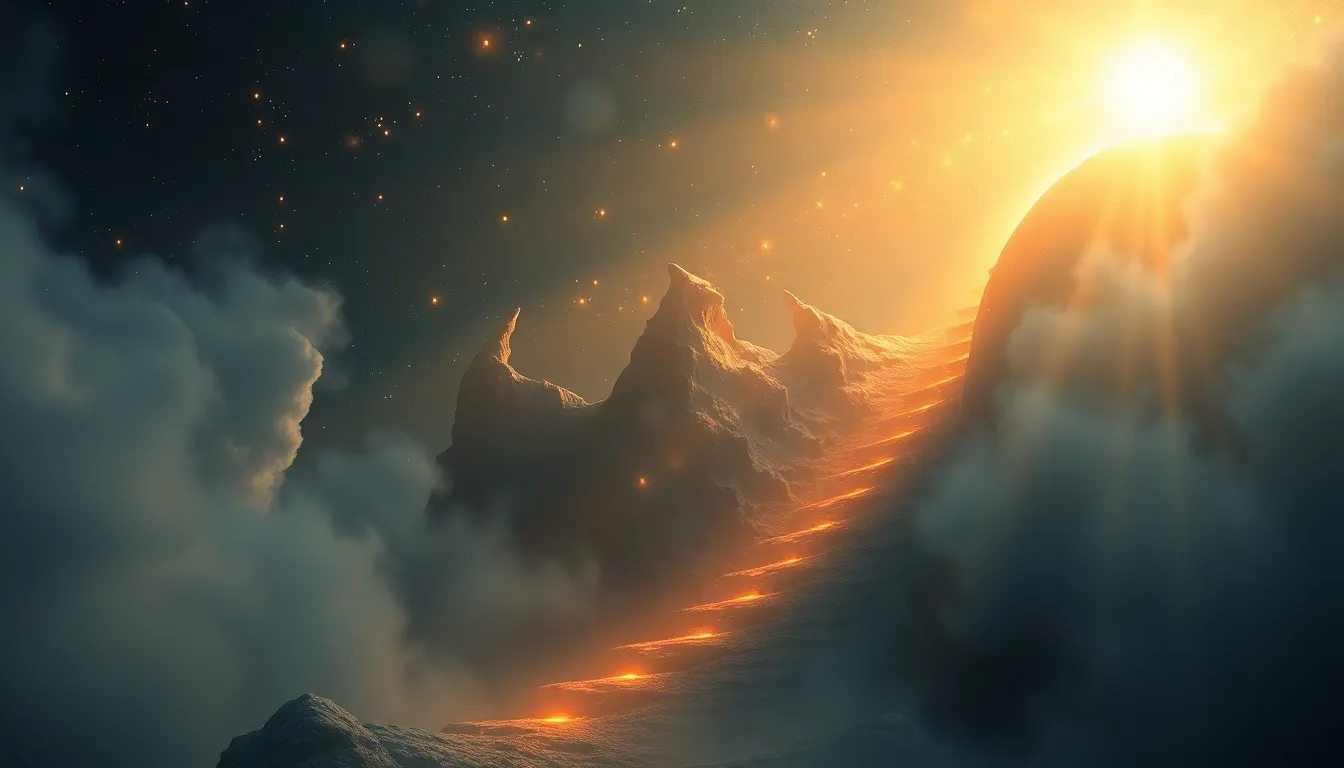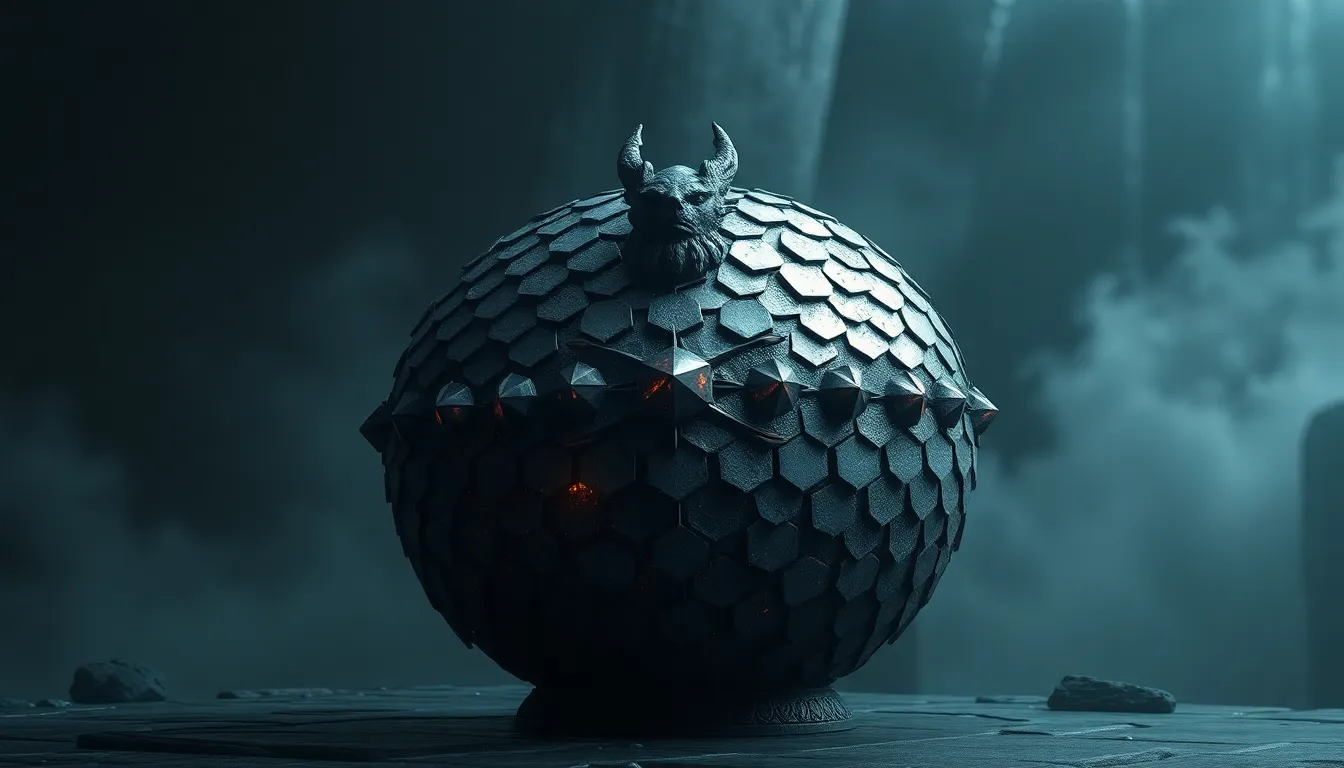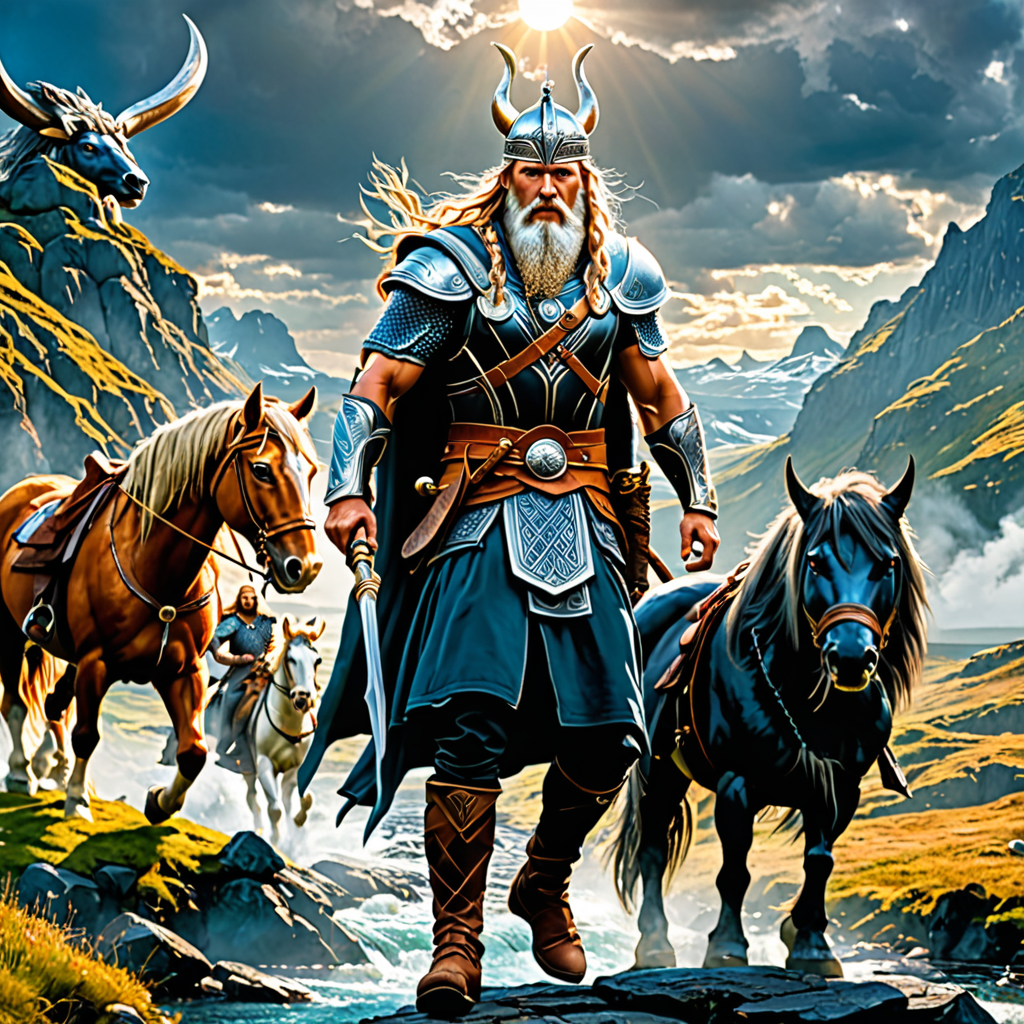The First Light: How Creation Myths Illuminate Our Path
Introduction: The Power of Creation Myths
Creation myths serve as foundational narratives that explain the origins of the world, humanity, and the cosmos. Across different cultures, these stories convey essential truths about existence, morality, and the human condition. They not only reflect the beliefs and values of a society but also provide a framework for understanding the complexities of life.
This article aims to explore the significance of creation myths and how they illuminate our path in life. We will delve into universal themes, notable myths from various cultures, the symbolism of light, and the influence of these narratives on human identity and spirituality. We will also consider the psychological impact and modern interpretations of these ancient tales.
The Universal Themes of Creation Myths
Creation myths share several universal themes that resonate across cultures. These themes often include:
- Chaos and Order: Many myths begin with a chaotic void from which order emerges.
- Light and Darkness: The dichotomy of light and darkness symbolizes knowledge and ignorance.
- Emergence of Life: Stories often describe the processes through which life is created and the relationships between different forms of existence.
These themes reveal humanity’s quest to understand the universe and our place within it, offering insight into the collective psyche of societies throughout history.
Creation Myths from Different Cultures
Creation myths vary widely across cultures, each offering unique perspectives on the origins of life and the universe. Here are a few notable examples:
- The Genesis Creation Narrative: In the Judeo-Christian tradition, the Book of Genesis describes how God created the world in six days, culminating in the creation of humanity in His image.
- The Hindu Creation Story: The Hindu text describes Brahma emerging from a cosmic egg, who then creates the world and all living beings, illustrating the cyclical nature of existence.
- The Maori Creation Myth: In this story, Ranginui (the sky father) and Papatuanuku (the earth mother) are separated by their children, leading to the emergence of life on Earth.
- The Big Bang Theory: While not a myth in the traditional sense, the Big Bang Theory offers a scientific explanation for the origins of the universe, portraying a beginning from a singular, explosive event.
Symbolism of Light in Creation Myths
Light often serves as a powerful symbol in creation myths, representing knowledge, enlightenment, and divinity. The introduction of light is frequently depicted as the catalyst for the emergence of life and order from chaos. For instance:
- In Genesis, God declares, “Let there be light,” marking the beginning of creation.
- In many Indigenous narratives, light is associated with the arrival of spiritual beings who bring wisdom and guidance.
This symbolism emphasizes the transformative power of light, suggesting that knowledge and understanding are essential for navigating the complexities of existence.
Creation Myths and Human Identity
Creation myths play a crucial role in shaping cultural identity and collective memory. They provide communities with a shared narrative that fosters a sense of belonging and continuity. Some key aspects include:
- Cultural Identity: Myths contribute to the formation of cultural identities by linking people to their historical roots and shared beliefs.
- Societal Values: These stories often embody moral lessons and ethical guidelines that shape societal norms and behaviors.
As such, creation myths are not just stories; they are living narratives that influence how communities understand themselves and their place in the world.
The Psychological Impact of Creation Myths
The psychologist Carl Jung posited that creation myths tap into archetypes and the collective unconscious, helping individuals navigate their own existence. These narratives address fundamental human questions, such as:
- Why are we here?
- What is the nature of existence?
- How do we find meaning in life?
By engaging with these myths, individuals can find comfort and understanding in the shared experiences of humanity, fostering a sense of connection to something greater than themselves.
Modern Interpretations of Ancient Myths
Contemporary thinkers and artists often reinterpret creation myths to address modern issues and challenges. This includes:
- Climate Change: Artists use mythological themes to highlight the relationship between humanity and nature, urging a return to harmony with the environment.
- Technology: As society grapples with advancements in AI and biotechnology, new myths are emerging that explore the implications of these technologies on human identity and existence.
The relevance of creation myths continues to evolve, allowing them to resonate with new generations and contemporary challenges.
Creation Myths and Spirituality
Creation myths are integral to religious and spiritual practices, providing a framework for understanding the divine and the cosmos. These narratives foster a sense of connection to the universe and to one another. They often serve as:
- Rituals: Myths are central to various rituals that celebrate creation and the cycles of life.
- Philosophical Reflections: They provoke contemplation about existence, morality, and the nature of the universe.
Through these narratives, individuals can find a deeper sense of purpose and belonging in their spiritual journeys.
The Future of Creation Myths
As society evolves, creation myths may adapt in response to modern scientific discoveries and cultural shifts. Potential developments include:
- Interpreting Scientific Discoveries: New scientific theories may inspire fresh narratives that blend ancient wisdom with contemporary understanding.
- Emerging Myths: The exploration of space and artificial intelligence may lead to new myths that address the implications of these advancements on humanity.
These evolving narratives will likely continue to shape our understanding of existence and our role in the universe.
Conclusion: The Enduring Legacy of Creation Myths
Exploring creation myths reveals profound insights into the human experience. These narratives offer a lens through which we can understand our origins, identity, and moral compass. As we navigate the complexities of modern life, the enduring legacy of creation myths provides guidance and meaning, reminding us of our shared humanity and the universal quest for understanding.




